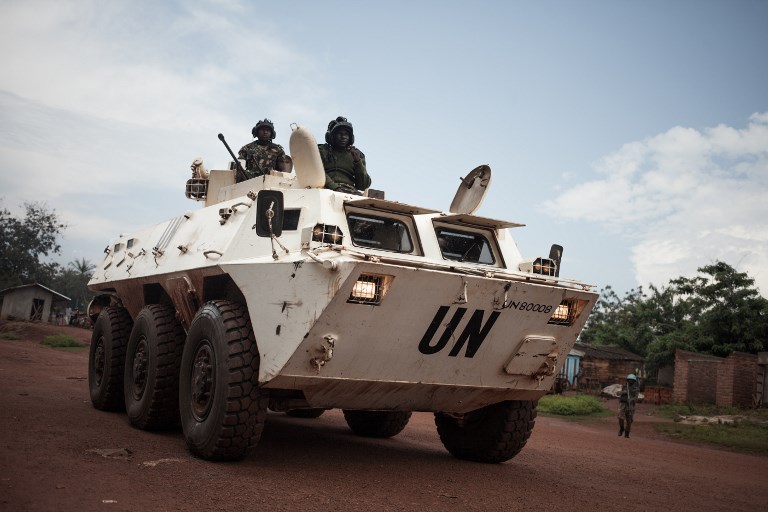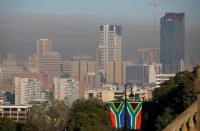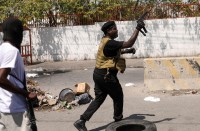
by Charles Bouessel
Agence France-Presse
BERBERATI, Central African Republic (AFP) — “This road isn’t safe,” warns a UN soldier at the edge of a jungle where the latest militia to darken hopes for peace in the Central African Republic has surfaced.
Huddled with assault rifles in a pickup truck that slides across the thick red mud, the Tanzanian peacekeepers keep watch on the Mambere-Kadei forest, home to a small but violent group that came to the fore last September.
Known as Siriri, the force is drawn mainly from Fulani cattle herders, who say they took up arms to deal with rustlers. Cattle theft is frequent in the west of the country, where seasonal migration of livestock is common practice.
Led by an individual named Ardo Abba, Siriri — its name means “peace” in Sango, CAR’s main language — has led raids on villages, and warned the UN force of reprisals if its troops continue to operate in the region.
The movement is the latest armed group to surface in a conflict that has displaced more than a quarter of CAR’s population of 4.5 million people and seen no fewer than seven peace accords signed and fail.
“They arrived on motorbikes, about 20 of them, wanting to settle in the village, but people refused,” said a man who gave his first name as Michel, describing an attack on New Year’s Eve.
“Then they started looting,” he said. Two people were killed and 25 stores robbed.
“They whipped me here,” said Michel, displaying his neck. One fighter “got his rifle out to kill me, but their chief said no. That’s when I made my escape.”
Militia gaining strength
The raid is one of countless similar attacks in a largely lawless country with a weakened government since a coup in 2013.
Outside the capital Bangui, much of the CAR is divided among 15 armed groups disputing control of natural resources.
The church and foreign powers including the African Union have sought to mediate between the government and the militias. Last Thursday Russia tried to set up a meeting in Sudan.
President Faustin-Archange Touadera’s office says the Russian initiative was dropped as “the head of state believes there is no cause to engage in other processes while the African Union one is still under way.”
Siriri is estimated to number no more than a hundred men but is steadily gaining in strength, according to the ex-chief of one of the “anti-balaka” militia groups, which emerged in mostly Christian communities to confront the mainly Muslim rebels behind the 2013 coup.
“They have new uniforms, new weapons, new ranger boots. Some of them even have bullet-proof vests,” he said, acknowledging that neither he nor any other self-defence force could match such a well-equipped adversary.
Cattle for ‘protection’
“Every month, they take ransom from villages: 1.5 million CFA francs (2,300 euros) for a big village, 500,000 for a little one. Cattle-raisers must pay them at least one head of cattle per month in exchange for ‘protection’,” he added.
In response to the harassment, troops from United Nations CAR peacekeeping mission MINUSCA launched military action against the Siriri militia on April 12, killing dozens of fighters.
The militia had put up a roadblock and shot at a UN patrol, which returned fire.
Four rebels, including military operations chief Mahamat Djibrila, were killed.
Siriri went to seek allied reinforcements further north, from armed group the Democratic Front of the Central African People (FDPC) and another group called the 3R.
Last month Siriri killed a peacekeeper and wounded seven others in an ambush that also led to the death of 16 rebels.
Apart from claiming to avenge the dead, the armed group is fighting against the creation of forward outposts on territory it says it controls.
Tanzanian UN troops have already built four outposts and are preparing to install a fifth.
A military source said the outposts were a positive step, but insufficient.
“As long as the border with Cameroon escapes control, they (the armed groups) will always have sanctuaries where they can hide.”







